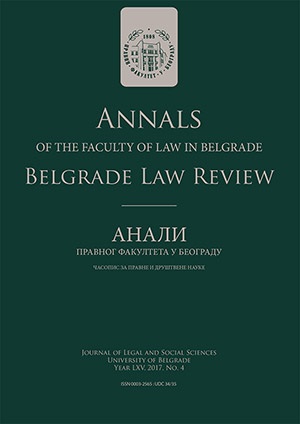Why Do Borrowers Choose Suboptimal Mortgage Contracts? A Behavioral Economics Approach
Why Do Borrowers Choose Suboptimal Mortgage Contracts? A Behavioral Economics Approach
Author(s): Ana OdorovićSubject(s): Business Economy / Management, Comparative Psychology
Published by: Правни факултет Универзитета у Београду
Keywords: Behavioral law and economics; Mortgage contracts; Contract efficiency; Cognitive biases
Summary/Abstract: Mortgage contracts have evolved to include a variety of contract design features whose aim is to address the demand of heterogeneous borrowers. Given that borrowers know best their budget constraints and preferences for risk exposure, the question is why many borrowers fail to maximize their welfare through the choice of mortgage contract. The aim of this paper is to explain the causes of suboptimal out comes in the mortgage market, relying on the theoretical framework of behavioral economics. The first part of the paper provides an overview of the main differences between the rational choice and behavioral economics approach to contract efficiency and discusses the most relevant cognitive biases, identified within behavioral economics. The second part of the paper applies the findings of the two approaches to the issue of mortgage contracts. Considerable attention is devoted to contract design features that are expected to exacerbate the borrower’s cognitive biases. Finally, the paper addresses the issue of why market forces fail to “debias” borrowers and, hence, eliminate inefficient mortgage terms.
Journal: Анали Правног факултета у Београду
- Issue Year: 65/2017
- Issue No: 4
- Page Range: 135-152
- Page Count: 18
- Language: English

